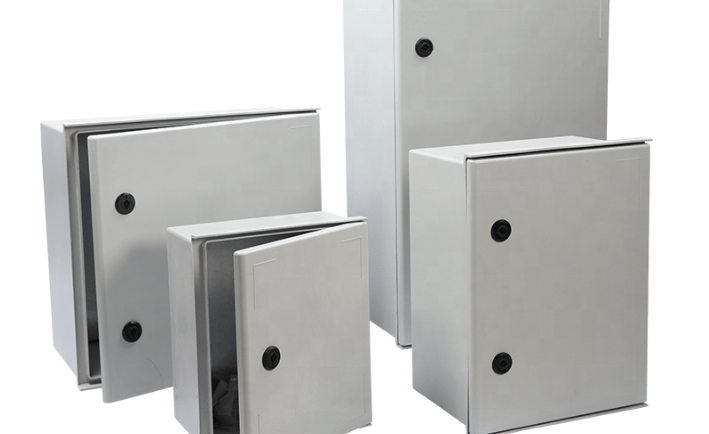Case Studies: Real-Life Applications of Electrical Fiberglass Boxes in Action
6/5/20244 min read


```html
Introduction to Electrical Fiberglass Boxes
Electrical fiberglass boxes are an integral component in various electrical systems due to their unique material properties and versatile applications. Constructed from high-quality fiberglass reinforced plastic, these boxes offer a range of benefits that make them a preferred choice over traditional materials such as metal or plastic. The fiberglass material imparts exceptional durability, making the boxes highly resistant to impact, wear, and environmental factors.
One of the standout features of electrical fiberglass boxes is their resistance to corrosion. Unlike metal boxes, which can rust and degrade over time when exposed to moisture or chemicals, fiberglass maintains its integrity in harsh environments. This makes fiberglass boxes ideal for applications where long-term reliability is crucial, such as in outdoor installations or industrial settings where exposure to corrosive substances is common.
Another key advantage of fiberglass is its electrical insulating properties. Fiberglass is a non-conductive material, ensuring that the boxes provide excellent protection against electrical hazards. This characteristic significantly enhances safety in various applications, from residential wiring installations to complex industrial electrical systems. Additionally, fiberglass boxes are lightweight, which simplifies installation and reduces labor costs.
The versatility of electrical fiberglass boxes extends to a wide range of applications. In industrial environments, these boxes are employed to house and protect sensitive electrical components from exposure to dust, moisture, and mechanical damage. In commercial settings, they are used in electrical distribution systems to ensure safe and reliable power delivery. Residential applications include their use in outdoor lighting, pool and spa installations, and in areas prone to moisture, such as basements and garages.
Overall, the adoption of electrical fiberglass boxes across industrial, commercial, and residential settings underscores their importance in modern electrical infrastructure. Their combination of durability, corrosion resistance, and electrical insulation properties makes them an indispensable choice for ensuring safety and reliability in a variety of challenging environments.
```Case Study 1: Industrial Application in Harsh Environments
The chemical manufacturing industry often grapples with challenging conditions, including exposure to corrosive substances, extreme temperatures, and high moisture levels. A notable case study involves a leading chemical plant in the Gulf Coast region, where the operational environment posed significant risks to electrical components. The plant required a robust solution to protect its electrical systems and ensure uninterrupted operations.
The facility previously relied on traditional metal enclosures, which frequently succumbed to corrosion and required regular maintenance. This not only increased operational costs but also led to unscheduled downtimes, impacting overall productivity. To address these issues, the plant switched to electrical fiberglass boxes, renowned for their resilience in harsh environments.
Electrical fiberglass boxes offered several advantages critical to the plant's needs. Their inherent resistance to corrosive chemicals and moisture significantly extended the lifespan of the enclosures. Additionally, fiberglass's high thermal stability ensured that the boxes could withstand extreme temperature fluctuations, which are common in the region. The plant's maintenance manager noted, "The switch to fiberglass boxes drastically reduced our maintenance cycles and downtime, allowing us to maintain continuous production without the frequent interruptions we previously experienced."
Performance metrics post-implementation were highly favorable. The plant reported a 40% reduction in maintenance costs within the first year. Moreover, the frequency of unscheduled downtimes decreased by 30%, directly correlating with an increase in overall productivity. These figures underscore the effectiveness and reliability of electrical fiberglass boxes in demanding industrial settings.
This case study highlights the transformative impact of adopting fiberglass enclosures in environments characterized by harsh conditions. By mitigating the detrimental effects of corrosive substances, extreme temperatures, and moisture, electrical fiberglass boxes provided a sustainable and cost-effective solution, ensuring the plant's operational efficiency and longevity.
Case Study 2: Commercial and Residential Applications
Electrical fiberglass boxes have demonstrated significant advantages in both commercial and residential settings, addressing specific needs such as aesthetic considerations, ease of installation, and compliance with stringent safety regulations. In several commercial projects, the use of fiberglass boxes has proven to be a game-changer. For instance, in a multi-story office building in downtown Chicago, the project managers selected fiberglass boxes due to their non-corrosive and non-conductive properties. This decision not only ensured long-term durability but also enhanced the overall safety of the electrical installations.
One of the key benefits noted in this commercial application was the ease of installation. Electricians found the lightweight nature of fiberglass boxes to be a significant advantage, reducing installation time and labor costs. Additionally, these boxes were easily cut to fit custom applications without compromising their structural integrity. Feedback from the electricians underscored the user-friendly design, which simplified the process of mounting and wiring.
In residential projects, homeowners have appreciated the aesthetic flexibility offered by fiberglass boxes. For a newly built housing development in suburban New York, developers opted for fiberglass boxes to maintain a sleek and modern appearance without sacrificing functionality. The homeowners noted that these boxes seamlessly blended with the interior decor, unlike traditional metal counterparts that often required additional concealment efforts.
Moreover, compliance with safety standards is crucial in both commercial and residential applications. Electrical fiberglass boxes meet and often exceed industry safety regulations, providing peace of mind to both installers and end-users. Comparing these with traditional metal and plastic alternatives, fiberglass boxes offer superior resistance to environmental factors such as moisture and chemicals, making them ideal for diverse installation environments.
Overall, the adoption of electrical fiberglass boxes in commercial and residential settings has resulted in notable improvements in installation efficiency, aesthetic appeal, and long-term safety. These benefits highlight the practical advantages of choosing fiberglass boxes over traditional materials, reinforcing their growing popularity across various electrical applications.
